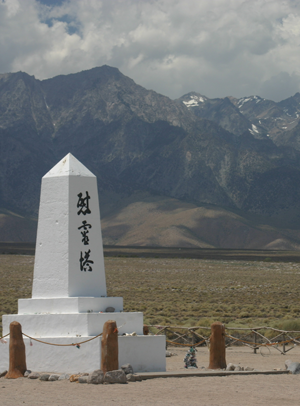Internment of Japanese-Americans during World War II offers cautionary message

Manzanar War Relocation Center, now a national historic site, in Owens Valley, California, was one of 10 detention camps. iStockphoto.
The ABA recently reinforced its opposition to government policies that discriminate against individuals by citing an action shortly after the United States entered World War II that stripped thousands of Japanese-Americans of their rights and property.
In a letter sent June 17, then-ABA President Paulette Brown expressed the association’s support for Senate Res. 373, “which recognizes the historical significance of the internment of Japanese-Americans during World War II and expresses the sense of the Senate that policies that discriminate against an individual based on race, ethnicity, national origin or religion would be a repetition of past mistakes.” Brown sent the letter to the resolution’s sponsor, Sen. Mazie K. Hirono, D-Hawaii.
While Hirono’s resolution addresses actions taken by the government more than 70 years ago, the historical lessons still resonate today as debate intensifies over whether U.S. borders should be closed to members of certain groups and whether Muslims should be required to register with the government.
“The ABA concurs with you that Americans need to be educated about, and mindful of, this dark chapter in our history and the circumstances that gave rise to it,” stated Brown in her letter to Hirono. “Your resolution is a reminder that our national experience has taught us that in times of crisis we must vigilantly guard against the dangers of overreaction and undue trespass on individual rights lest we betray our values and lose the very freedoms we are fighting to protect.”
President Franklin D. Roosevelt signed Executive Order 9066 on Feb. 19, 1942, authorizing military authorities to move some 120,000 Japanese-Americans—about 70,000 of them U.S. citizens—from their homes in parts of the West Coast that were designated as “military areas” to replacement camps further inland, often in some of the most remote and inclement regions in the Western desert or mountains.
Roosevelt justified his action by stating in the order that “the successful prosecution of the war requires every possible protection against espionage to national-defense material, national-defense premises and national-defense utilities.” Roosevelt didn’t suspend the order until December 1944, and it successfully withstood a number of legal challenges. In 1944, for instance, the Supreme Court ruled 6-3 in Korematsu v. United States that the internment was justified in time of war as a matter of national security.
‘A GRAVE MISTAKE’
“It is sobering to recall that during the war, every branch of our government—even the judiciary—justified the exclusion, forced removal and incarceration of citizens and permanent resident aliens of Japanese descent as necessary for our national defense,” Brown stated in her letter to Hirono. “It took decades for our government to admit that the systematic deprivation of civil liberties was a grave mistake animated by racial prejudice, war hysteria and a failure of political leadership.”
President Gerald R. Ford formally rescinded Executive Order 9066 in 1976. And in 1988, President Ronald Reagan signed the Civil Liberties Act acknowledging the injustice of the internment, apologizing for the government’s actions and authorizing payments of $20,000 to each survivor. Feb. 19 is now designated as a National Day of Remembrance commemorating the internment of Japanese-Americans and the importance of upholding justice and civil liberties for all residents of the United States.
The ABA has expressed opposition during this Congress to legislative proposals to specifically delay or halt U.S. resettlement of Syrian, Iraqi or Muslim refugees. In correspondence to congressional leaders, Brown cited this country’s long-standing leadership in offering protection to the world’s most vulnerable populations. “As our nation struggles to address challenges posed by recent horrific attacks at home and abroad,” she wrote, “it is important we do so in ways that uphold the fundamental principles of our democracy.”
This article originally appeared in the September 2016 issue of the ABA Journal with this headline: “History Lesson: The internment of Japanese-Americans during World War II offers a cautionary message for current political debates.”
This report is written by the ABA Governmental Affairs Office and discusses advocacy efforts by the ABA relating to issues being addressed by Congress and the executive branch of the federal government. Rhonda McMillion is editor of ABA Washington Letter, a Governmental Affairs Office publication.
Write a letter to the editor, share a story tip or update, or report an error.


